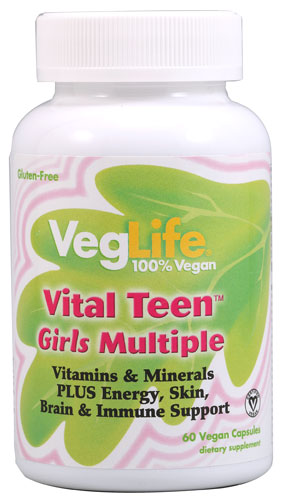All sorts of scary stuff lurks on the internet, especially when it comes to kids. Online predators are perhaps the biggest concern for moms and dads.
A new study sheds light on a different online danger for youths — a danger that might not be on parents’ radar. A researcher at the University of Kansas has found that young people are highly susceptible to believing and acting on unreliable online information about health.
In her study, Susan Harvey, assistant professor of health, sport and exercise sciences at KU, observed eight middle-school students as they conducted Google searches about nutrition and physical activity. Her key findings: The students typically failed to verify information discovered online, trusted purported facts from shady websites, and dismissed credible websites whose information they perceived as being too tough to grasp.
“The data shows adolescents are using the internet to look for health information. There have been a few studies looking at how adults search for health information, but not kids, and even though we know they’re looking, we don’t know much about where they’re looking,” Harvey says in a news release.
One of the most disturbing revelations in the study: The youths often were drawn to sites that promoted unhealthy behavior like anorexia, bullying, steroids and suicide, and sites that generally dispensed erroneous information. Many of these sites featured large text, lots of graphics and a less text-heavy format.
“I think the unreliable sites were just more visually appealing for them,” Harvey says. “None of the adolescents, except for one, tried to determine the credibility of the sites they looked at. And the one told us her parents taught her to do that. It’s not necessarily what the sites said, but just their thought that ‘If it’s on the internet, it must be true.’”
When the students were asked whether their teachers had offered advice on how to locate dependable information online, they said the teachers had only told them to stay away from Wikipedia, an internet encyclopedia, and WebMD, a health website.
“Adolescents are going to the internet instead of turning to Mom or Dad or the school nurse or another adult,” Harvey says in the news release. “A lot of times it’s about a sensitive topic they might not want to ask their parents about, but they’re also looking for information on serious and increasingly common conditions like asthma, diabetes or obesity. They know a lot about the internet, but knowing how to effectively search for good information is something they sorely need.”
(Harvey’s research was a small-scale pilot study, not a full-fledged study, and hasn’t been published yet in an academic or scientific journal.)
In light of Harvey’s study, how can you teach your kids where to go on the internet for health information without being misinformed? Here are four tips that apply to both kids and adults.
1. Visit websites that you know and trust.
Well-known nonprofit sites operated by the Mayo Clinic, Harvard Medical School and Cleveland Clinic are trustworthy, go-to sources for health information — information that has been vetted by health care professionals. The government-run PubMed.gov is another dependable option.
Also reliable are websites run by nonprofit organizations such as the Alzheimer’s Association, American Cancer Society, American Diabetes Association and American Heart Association.
Information published by WebMD has been called into question, though, because the popular for-profit site makes money from advertisers, including pharmaceutical manufacturers and health care providers, and because the accuracy of the content might not be up to par with the likes of content produced by the Mayo Clinic or American Heart Association.
In its defense, WebMD insists it maintains editorial integrity, independence and excellence. Furthermore, the website says its content undergoes rigorous medical reviews, and any advertiser-sponsored content is clearly marked.Oh, and about Wikipedia — proceed with caution. While it’s one of the world’s most popular sources of health information, it’s not foolproof. Research shows the availability of accurate information on Wikipedia is mixed.
Brandon Mentore, a strength and conditioning coach, functional medicine practitioner and sports nutritionist, offers this advice about sifting through health information online: “Keep a framework of trusted informational sources with enough room to allow for other perspectives.”
Mentore emphasizes putting more stock in health information that’s “clinically validated rather than personally validated.”
“Beware of information that’s based off of personal experience. What’s good for the goose isn’t always good for the gander,” he says.
2. Trust, but verify.
It’s best to harbor some healthy skepticism about health information you read online, particularly on social media. This tip even pertains to research studies, as the methodology of a study can be flawed.
If you come across seemingly credible news about a promising new cancer treatment, for instance, search elsewhere online to see whether other trustworthy sites back up that news.
Most importantly, don’t play doctor based on health information you read online. A health care professional should be your ultimate guide regarding health care questions or conditions you’re researching on the internet.
“There are so many different avenues to health information that I think it’s important to be mindful that finding the ‘correct’ health information is really a personal process,” says Kelly Costigan, a certified holistic health counselor.
3. Be wary of slick sites.
“Don’t judge a book by its cover. Fancy marketing and advertising don’t necessarily confer quality or validity of information,” Mentore says.
However, he adds, health information that doesn’t feature research citations or similar validation isn’t necessarily devoid of all value.
4. Remember that health information isn’t “one size fits all.”
“Health and nutrition are highly individualized,” Mentore says, “and information has to be placed in your own context, which is a major key.”




